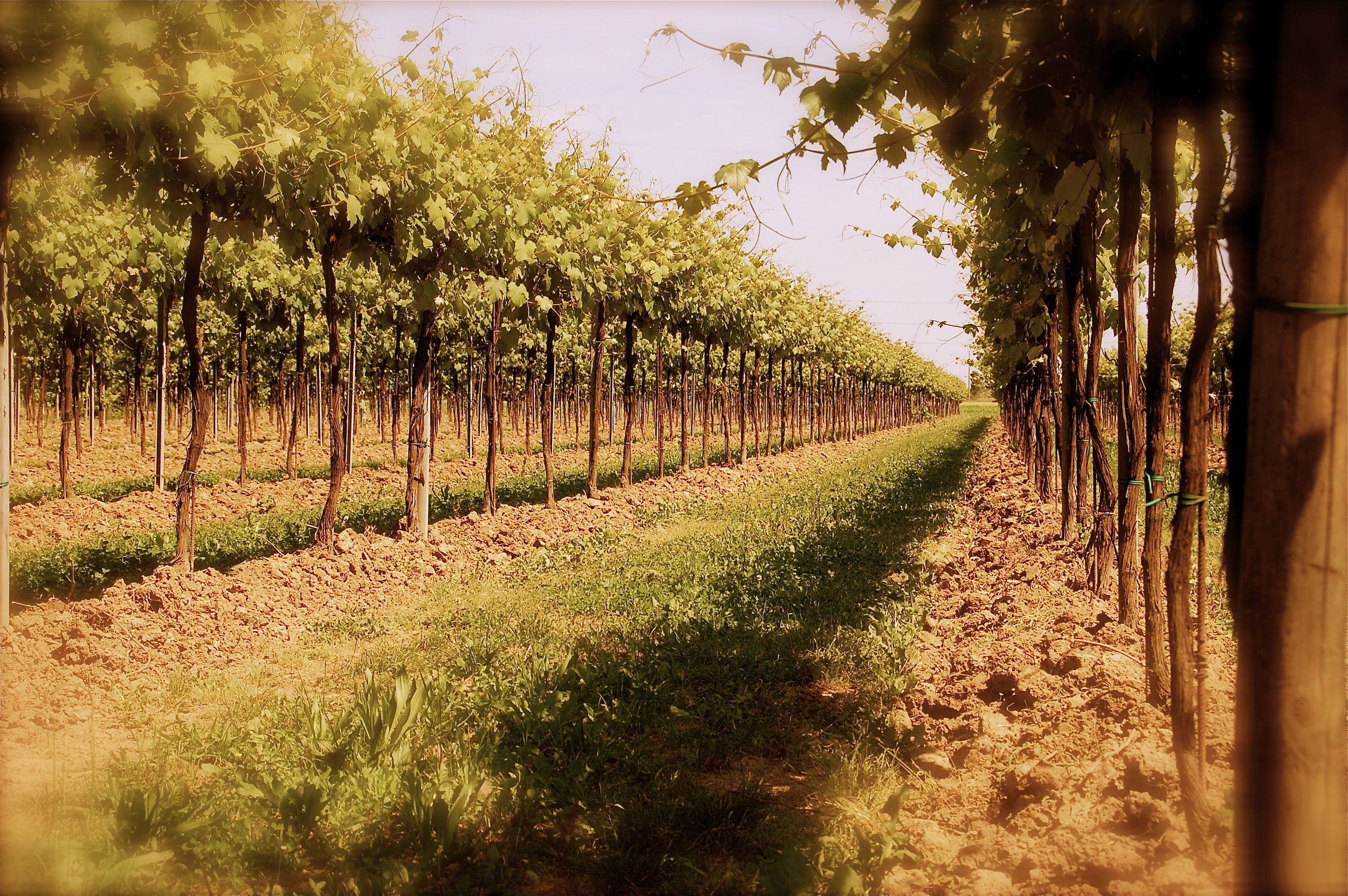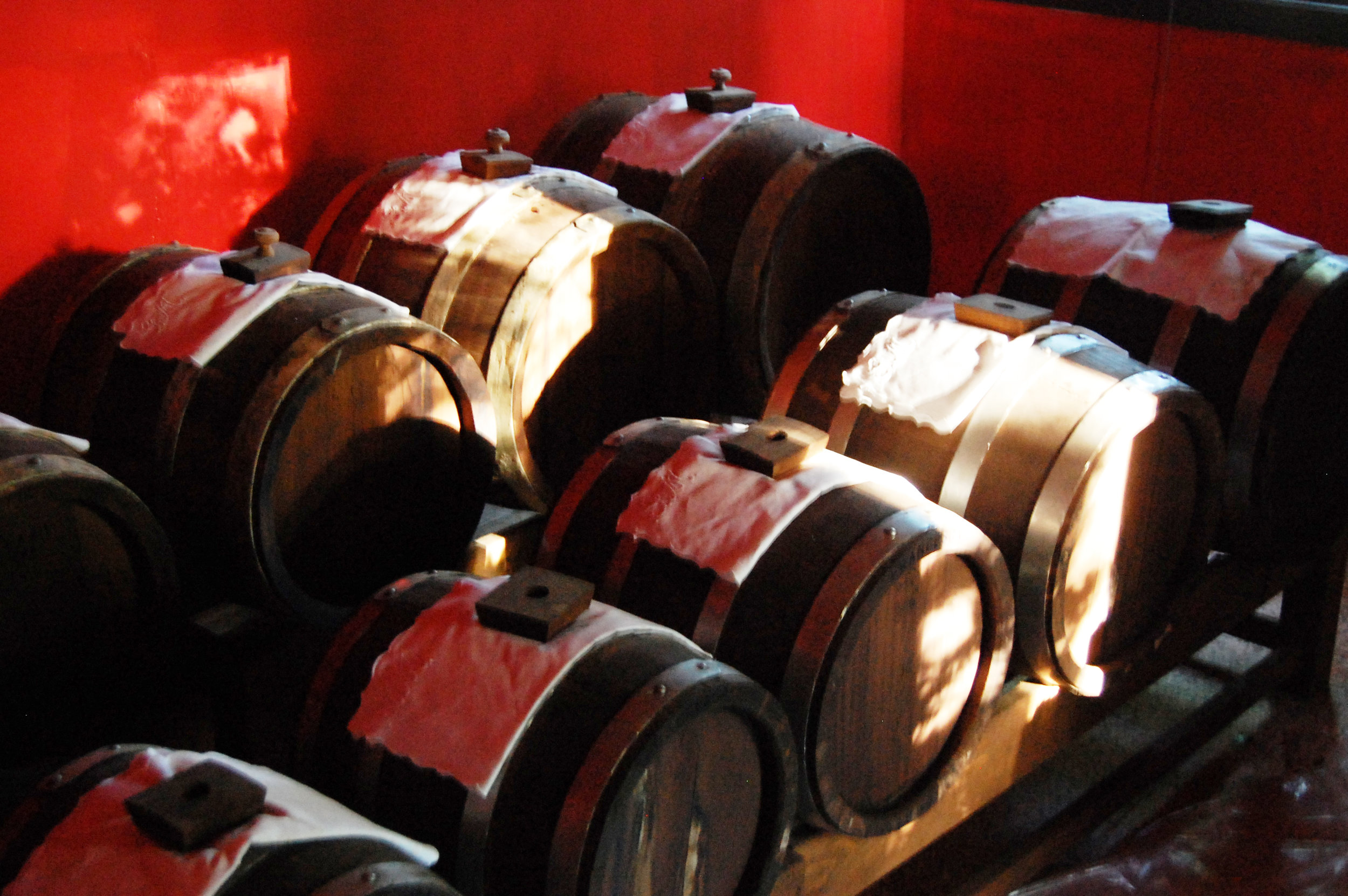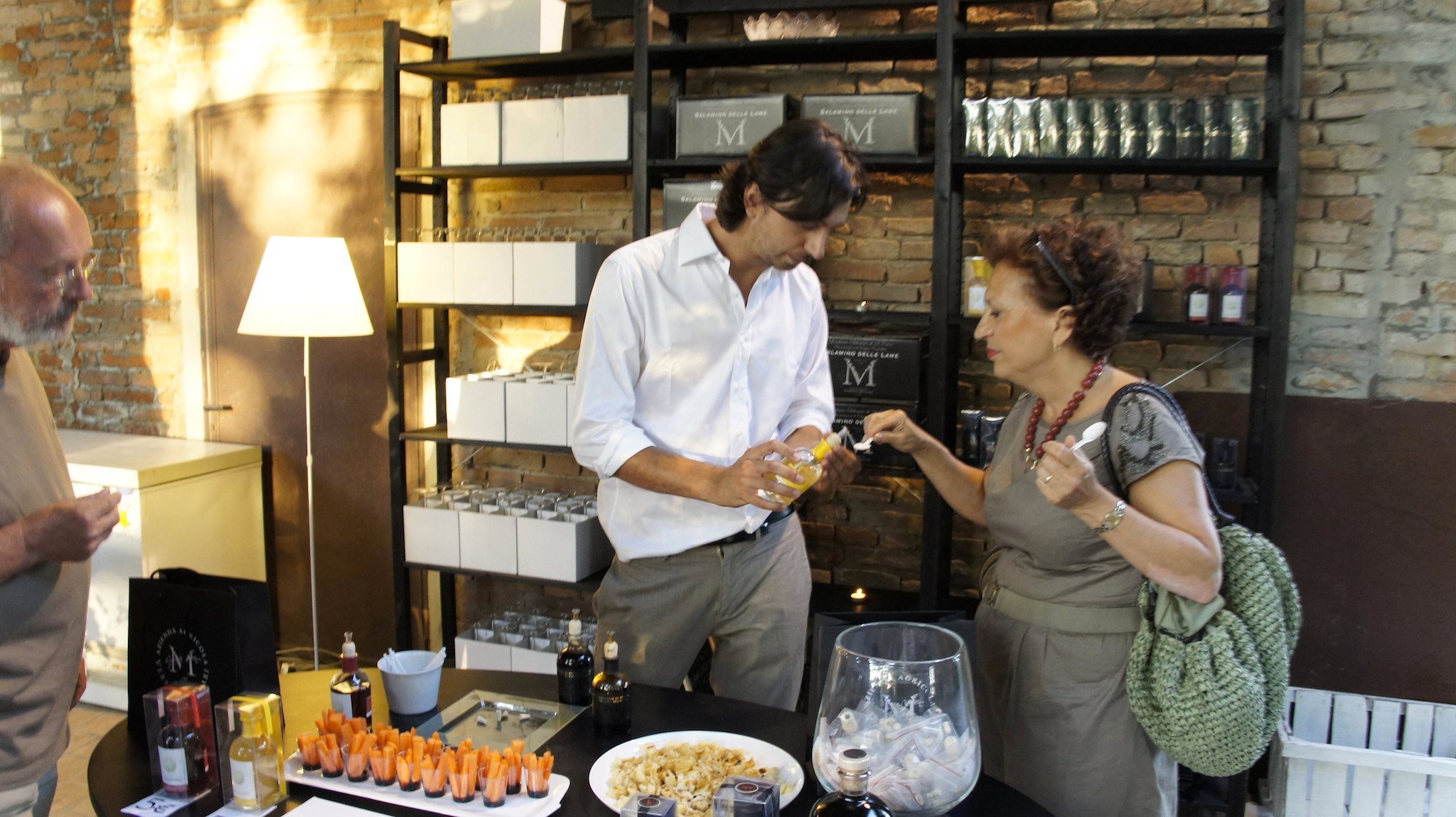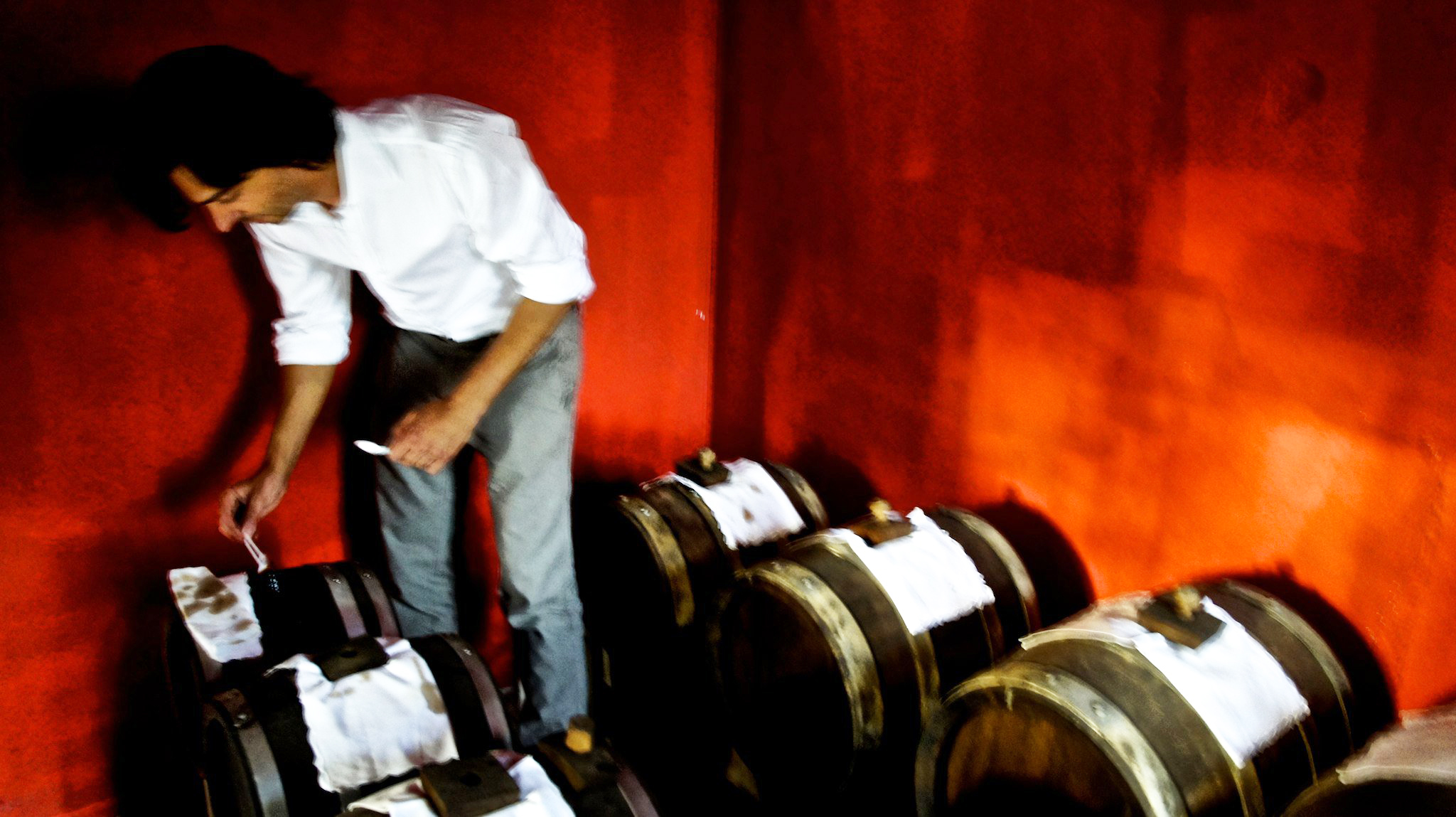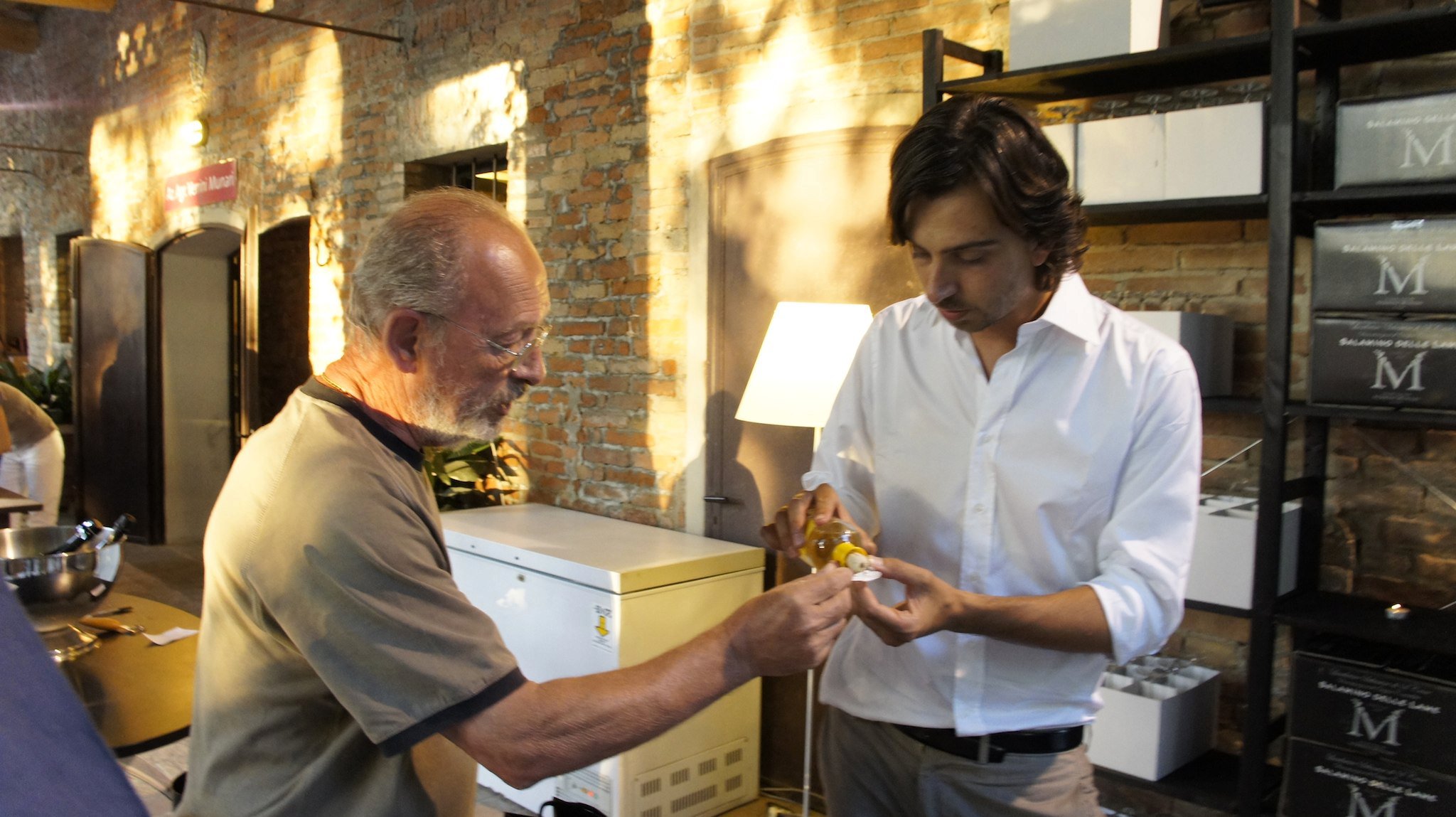When I reached RITROVO’s Ilyse Rathet, we talked while she squeezed in a walk on a crisp Seattle day. Ilyse easily shared her quick wit and purposeful approach to food and life, emanating belly laughs that almost instantly made me feel as if we were old friends. Although a New York native, she is fluent in Italian, so everything Italiano she pronounced was imbued with the casual elegance of the language and culture.
RITROVO (from the Italian ritrovare, to find or find again) is a Seattle-based company that imports a unique line of artisanal, regionally-focused, and predominantly organic Italian food products—often from generations-old and family-operated farms and production facilities. Co-founders and partners in life Ilyse and Ron Post are passionate about sharing the stories of their producers. Many of their product lines were hand-selected during the six years that the couple spent in Italy and Europe. As their interest for local foods and wines grew more serious while living abroad, they studied over a two year period to become sommeliers. Aside from running RITROVO, Ron and Ilyse teach enogastronomic classes (eno—wine; gastronomic—about the art or science of good eating), including wine appreciation at various levels, wine/food pairing, and olive oil tasting.
Ritrovo fruit balsamic vinegar collection
I was curious what Ilyse most wanted customers to feel and understand when they choose one of RITROVO’s award-winning balsamics, sauces, salts, or honeys from The Savory Pantry. She lamented, “Many people say, ‘Oh! You’re just an importer’ . . . but RITROVO is so much more than that. We are regularly in Italy, finding producers that are the best at what they do because they’ve spent their lifetimes doing it, and in many cases, we are working with them to develop products until they fulfill our very exacting specifications.”
Since spring salad and grilling season are upon us, Ilyse and I began talking more specifically about RITROVO’s organic apple, raspberry, and citrus balsamics, which RITROVO has developed with Italian maker Nicolo Verrini.
Ilyse reflected on the origins of the citrus balsamic, born of a stay in coastal Sorrento, Italy. “We were seated at a table, our bodies warmed by the sun, overlooking the bay of Naples, sipping cold spremuta—the fresh lemon and orange juice mixed together in a tall glass—feeling like we could live forever. It was glorious! I looked at Ron and said, ‘We’ve got to find a way to bottle this moment. Let’s call Nicolo and see if we could do a citrus balsamic.’”
“Nicolo had the know-how to capture that special moment in a bottle, so we worked with him, sampling and tweaking, until we pulled it off. We have so much confidence in Nicolo. In his 30s, he represents a new generation of balsamic makers. He is innovative, but also doesn’t stray too far from tradition simply for the sake of creating something trendy, and he’s not commercial. As sommeliers ourselves, Ron and I are very choosy about flavor profiles. Nicolo was also trained in wine school, and brings that training to this line of organic fruit balsamics. Fruit balsamics tend to be an American thing and many times are overly sweet, and not balanced, but we wanted to push against that.”
In RITROVO’s organic apple balsamic, the trio earned the prestigious Gold Sofi Award from the Specialty Food Association. “We loved this project because it bottles everything we, as a company and as individuals running that company on thoughtful standards, are looking for. It has a known terroir—or source for the apples; the Trentino region of Italy is in the northern part of the country, not far from Austria, and is renowned for its juicy, tart apples and fruit juices. This means that what you’re tasting is something very unique from a particular region in a particular season, a centuries-old Italian value that is sometimes not as valued in American culture. The balsamic is also composed of organic grape must from Modena. We choose products that represent the Italian cuisine and culture—clean, simple, not thoughtlessly spiced, not disguised. This apple balsamic has a beautiful acidity, not too heavy, not too light. I think all these features play into why it has been so well received.”
“Visual appeal is a quality that is very important to us, because it lends to the essential enjoyment. To create density, many balsamic makers will add xantham gum, which is easier and cheaper, but at RITROVO, a leading value is that ingredients must be all natural, and therefore the element of density must rely on natural fruit pectin. The right density is what lends its visual aesthetic as well as its feel in the mouth and the way that it works with other ingredients. You’ll notice the clarity of these balsamics.The grape must is cooked at low temperature so the caramelization of the sugar is avoided, and the product maintains a great clarity. Then the juice of the fruit gives the color to the base white balsamic. Nicolo is conscientious as he works to establish a balance of density, acidity, and sweetness.”
Ilyse was eager for me to be in conversation with Nicolo. Through the photographs he sent, it was easy to imagine him tasting from his balsamic barrels and sharing sips with customers. “My grandfather started making balsamic vinegar back in the 60s, and he passed down to me this passion. I started very early in my age and I think I will never stop. There are many good balsamics out there, but I really love my job and somehow this gets translated into my products, and people can taste this. I predict that in the future we will see more and more balsamics made in the States. The trend will be the same of what happened in the wine business in Napa. But for now I think what makes Italian and American balsamics different is the culture that we have in Italy towards food.” It seems somewhat ephemeral, but Nicolo is right—almost magically, you can taste the reverence, the love of living and profession, and, somehow, the generational history of Italy in these balsamics.
I ask what the basic steps are in making a good balsamic, thinking Nicolo will have a list of 10 or 15 tasks. Instead, he says, “There is only one rule, you need to have very very good raw materials, and do your best not to ruin what nature already gave us.” And that’s the very thing that Ilyse was getting at earlier—to be good, food doesn’t need to be complicated, it needs to honor pure and natural ingredients in their highest form. There’s a spiritual process operating at the core of RITROVO, no doubt.
Nicolo’s favorite thing to do with balsamics? “Just put one spoon of citrus balsamic or white balsamic in a big glass of sparkling water with ice. Refreshing!” Does he ever tire of tasting or smelling vinegar? “Only when I taste repeatedly my competitors’ balsamics!”
Well of course.
Ilyse and Nicolo describe a new balsamic they are eager to roll out—a tomato vinegar, which balances sweet and savory. The Savory Pantry will proudly be one of the first stores in the US to carry it. Regarding the process, Ilyse said, “This one was our hardest yet because it is both sweet and savory, so you have to be careful. We went through a handful of prototype recipes. The first was far too sweet, with a hard candy quality. One tasted great but it wasn’t clear, so it wasn’t beautiful. We work together with Nicolo until we make a product in the form we think the idea on which it is based is best expressed. We’re really excited about the final result.” Nicolo shared, “I listen to the request of my customers, and I try to find the right ingredients that can match their needs. I go through a process of trial and error until I find something that works.” Nicolo’s words make the process sound simple, but the most incredible thing is, when you taste the vinegar, you get all the iterations, all the hard work, all the care that went into every round—distilled into the final result.
RITROVO: Simplicity, delight, and community. “Cento de questi giorni”! May you have a hundred of these days.


